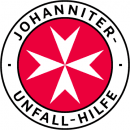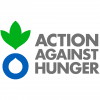Consultant - Project Final Evaluation
- Improved the comprehensive ophthalmic care for UNRWA refugees in the West Bank with a focus on vulnerable groups (women’s, elderly and PwD- People with Disabilities).
- Strengthened the capacity of the UNRWA centers for basic medical care to provide primary eye care services.
- Offered Mobile services for primary eye care in West Bank and a referral system by women's organizations, DPOs Disabled People Organization, and community-based rehabilitation programs (CBR) to the SJEHG is in place.
- Important and comprehensive primary, secondary, and tertiary eye medical services are offered to ophthalmic patients at the principal hospital in Jerusalem and at the centers in Anabta (North West Bank) and Hebron (South West Bank).
- The PEC (Primary Eye Care) Curriculum was developed during the 1st year of the project implementation in consultation with the Fred Hallow Foundation and UNRWA. It was approved by the Ministry of Health and, has been used to train the UNRWA Doctors and Nurses. The curriculum was printed in 30 copies and available for distribution to Doctors and Nurses who are willing to further the care and treatment of people who are requiring primary eye care.
- Comprehensive ophthalmic care for UNRWA refugees in the West Bank has improved, through the capacity building of 24 Medical Practitioners to perform a diagnosis for people with a common eye disorder, and 12 Nurses were trained to perform DR (Diabetic Retinopathy) testing.
- Provision of Diagnosis and Treatment:
- UNRWA Level: 53,531 patients were diagnosed and provided treatment for primary eye care and 1,400 for Diabetic Retinopathy.
- Mobile Clinic: 22,809 examined with a special focus on vulnerable groups such as women, individuals with disabilities, and older people
- SJEHG hospital – 58,429 patients were diagnosed and provided treatment for primary eye care.
- Referral: In summary 12,531 patients were referred to SJEHG for advanced diagnosis and treatment including surgery.
- Awareness raising: 17,513 patients attended and participated in health education on the prevention of blindness, diagnosis and treatment for primary eye diseases.
- To assess the performance and achievements of the project versus the project overall objectives.
- To generate lessons learned from the implementation of the project's activities and outcomes achieved that will be useful for similar projects in the future for the Health sector.
- To develop specific recommendations and majors anchored on the conclusions of the different groups of targeted communities through their own recommendations and insights.
- To promote sustainability and long-term impact with the people we work with.
- Process and timeline:
- The work plan includes a detailed methodology and data analysis plan (evaluation design, data analysis steps, and detail, operational work plan)
- Inception Report (with key parameters and indicators to be considered for the final evaluation including the methodologies for data collection and dissemination).
- Data Collection tools for final evaluation based on the project objectives as elaborated in the project document.
- Cleaned final dataset containing all data collected for the final evaluation, including KII/FGD analysis.
- An executive summary. It should include the major findings of the final evaluation and summarize conclusions and recommendations.
- Methods and techniques used (including relevant underlying values and assumptions, theories) with a justification of the selections made (of persons interviewed).
- Analysis and findings, to address the status of outcome indicators and changes to project assumptions
- Conclusions
- Lessons learns
- RELEVANCE; The appropriateness of project objectives to the problems that it was supposed to address, and to the physical and policy environment within which it operated. It should include an assessment of the quality of project preparation and design.
- Was the action adequately designed to respond to the needs of the direct people we work with?
- Were the project methodologies and activities relevant to achieve the project objectives?
- EFFICIENCY; The fact that the project results have been achieved at a reasonable cost, i.e. how well inputs/means have been converted into activities, in terms of quality, quantity, and time, and the quality of the results achieved. This requires comparing alternative approaches to achieving the same results, to see whether the most efficient process has been adopted.
- Was the project managed in a cost-efficient manner (in terms of human, financial, and other resources versus the results)?
- Were synergies capitalized on with other actors (local and international) involved in similar projects?
- EFFECTIVENESS; An assessment of the contribution made by results to the achievement of the project purpose, and how assumptions have affected project achievements. This should include a specific assessment of the benefits accruing to target groups.
- Were the expected results realized?
- Did the achievement of the results conduct to the achievement of the project-specific objective?
- What were the major factors influencing the achievement or non-achievement of set objective? If there is a gap between the benefits brought by the activities and the objective of the project, how can it be explained?
- During the project, how well did SJEHG provide information to communities and people served by the project, the principles it adheres to, how it expects its staff to behave, the project and what they intend to deliver.
- IMPACT; The effect of the project on its wider environment, and its contribution to the sector objectives (as summarized in the project’s overall objective).
- What evidence is there that the project contributed to the achievement of its overall objective?
- What, if any, were the unintended impacts of the project intervention, both positive and negative?
- Was the project able to monitor, mitigate and respond to any unintended negative effects?
- SUSTAINABILITY; An assessment of the likelihood of benefits produced by the project to continue to flow after external funding has ended (probability of continued long-term benefits).
- What evidence is there to suggest the project’s interventions and/or results will be sustained after the project end?
- What are the possibilities for replication and extension of the project’s outcomes? Human, organizational (including policies and institutions) and financial factors, as well as environmental and gender viability, are the main sustainability factors
- COHERENCE: To what extent were the project interventions and implementation strategies complementary and coherent to bring about desired changes? What procedures and measures did the project consider to avoid overlap or duplication?
- Consultant or consulting firm roles and responsibilities:
- Facilitate desk review of the relevant project documents such MMT Monthly Monitoring Tracking, quarterly report, annual report, project proposal.
- Facilitate key informant interviews (KIIs) with project-relevant participants from the UNRWA/Mobile and SJEHG clinics, MOH, INGO like CBM and Fred Hallows and JIA ME team
- Facilitate Focus Group Discussions (FGDs) with people served by this project.
- Johanniter roles and responsibilities:
- Review the consultant tools and provide inputs/ comments
- Review the work plan and make sure linked with the timeline.
- Provide all key documentation relevant to the evaluation (project proposal, Reports “monthly, quarterly, and annual).
- Review the analysis of collected data
- Review the first draft of the Final Evaluation report.
- John Eye Hospital Group (SJEHG):
- Provide essential information about project participants, referral system and other relevant information.
- Facilitate coordination with project participants relating to meetings, interviews and focus group discussions.
- Provide logistic and administrative (including permit if necessary) support in terms of visiting the project site.
- Provide inputs and comments in the initial draft of the evaluation result.
- Management of the Consultant Contract:
- Intellectual property and data protection
1. Budget
The indicative budget for this consultancy is 10,000 EUR including VAT and Withholding Tax (WHT).
This budget includes the consultant’s fee and taxes, any travel and expenses that might be required for data collection (depending on the proposed methodology), and any costs related to telephone or Skype use, transcriptions, software licenses, and office materials.
2. Payment for the service:
Payment will be made as follows:
- Milestone 1: On signing of the contract and upon submission of the work plan - 25%
- Milestone 2: On providing the draft report – 50%
- Milestone 3: On providing the final Report –Final 25%
Note: There will be a withholding tax that shall be deducted as per the Jordanian government regulation: if the consultant is from Jordan, a 5% withholding tax shall apply, and if the consultant is out of Jordan a 10% tax is applied.
In the situation that the consultant does not meet the agreed deadlines (without advance agreement from Johanniter), the second payment will be reduced by 5% for each calendar day the submission is late.
Jobs.ps, Ltd. All Rights Reserved.
- Master's degree in Public Health or similar fields, with at least 5 years of experience in research and Health Sector
- At least 3 years of experience in the design and implementation of evaluations, and assessments including qualitative and quantitative data collection.
- Knowledge and experience of OECD-DAC evaluation methodology.
- Excellent knowledge and understanding of research methodologies and processes.
- Experienced in conducting evaluation, research, analysis, statistics, and or similar studies in the past- experience
- Consultant should be based in Palestine, preferably in the West Bank or, Jerusalem.
- Experience in gathering and systematizing large amounts of data.
- Proven ability to manage highly confidential and sensitive information through a protection lens.
- Ability to work under tight deadlines with high standards and quality of reporting
- Cover letter- with the name, position, phone number, email and address of the company
- Full Technical proposal. This includes detailed budget, activities, time frame, human resources, and
- Sample reports- Please include two similar reports as sample work, completed by the consultant (dated after 2017)
- Tender Declaration Form - with signature
- The quotation should be on an official head letter signed and stamped with the date clearly indicated (scanned in PDF-Format). https://1drv.ms/w/s!AoItaouuoj6ZsmFrrZK85jFA5tOH?e=lX2ZpF
- A financial proposal with a detailed breakdown of costs for the study. (Definition of the expected services, schedule, and costs must be included in the quotation: listing and explanation of the products, services, and activities (e.g. in tabular form) to be provided by the consultant, including time frame and detailed cost breakdown.)
- The quotation should contain the gross daily rate and the total cost inclusive (with Tax if applicable) in EURO currency.
Queries regarding the consultancy can also be directed to this email address.
Interested applicants are requested to apply by 8th October 2023 and must be flexible to be immediately available from 15th October 2023 onwards, as the deadline for the consultancy completion is on the 24th November 2023 upon the approval of the final report. Due to time constraints, applications will be reviewed on a rolling basis.






